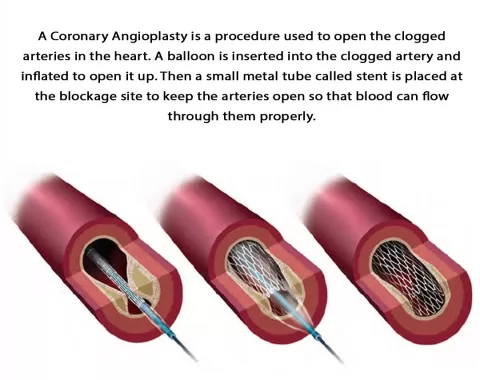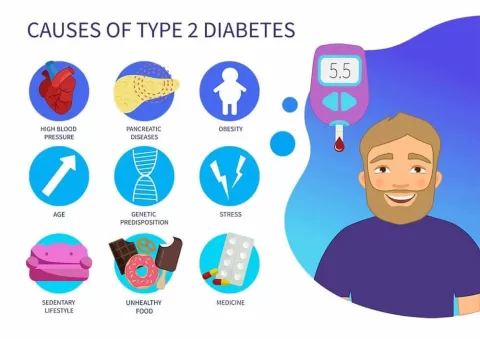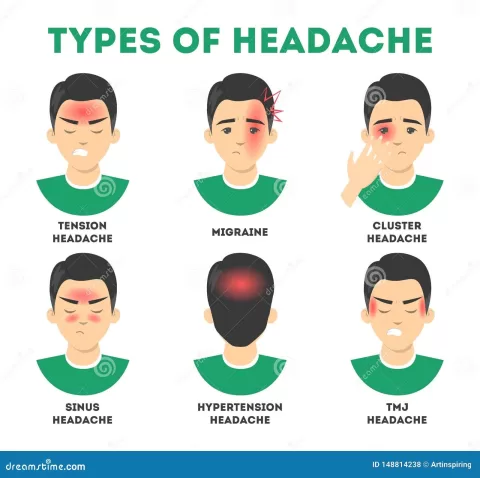Toothache and heart attack may seem unrelated at first glance, but recent findings reveal a significant correlation between the two. While tooth pain symptoms are often brushed off as simple dental issues, they can sometimes signal much graver health concerns, including heart attacks. Many individuals are unaware that the nerves linked to their heart and jaw can intertwine, creating confusion during diagnosis. Notably, symptoms of angina could manifest as toothaches, highlighting the importance of understanding these heart attack warning signs. By educating ourselves on the angina toothache connection, we can better discern whether to consult a dentist or cardiologist, ensuring timely intervention when faced with toothache causes that suggest cardiac distress.
Dental pain, often perceived merely as a sign of tooth decay or gum disease, can unexpectedly reveal deeper physiological issues such as cardiovascular conditions. When discomfort in the mouth arises, many may instinctively seek help from their dental provider, unaware that these sensations could stem from heart-related problems. The intersection of oral health and heart health is an area of growing concern, particularly with the connection between angina and dental discomfort. Understanding the multifaceted nature of pain can empower individuals to make informed decisions regarding their health, prompting them to consider potential heart attack indicators alongside their tooth pain. Overall, recognizing alternative terms, such as dental distress, in conjunction with cardiac symptoms can enhance our awareness and lead to better health outcomes.
Understanding Tooth Pain Symptoms and Their Implications
Tooth pain symptoms can range from mild discomfort to severe agony, often prompting individuals to seek immediate dental care. Common causes include cavities, gum disease, or infections that lead to inflammation of the nerves in the affected teeth. For many, a toothache can disrupt daily activities, making it vital to address the pain swiftly. However, not all toothaches stem from dental issues, as they can occasionally signal broader health problems, including cardiovascular concerns.
In particular, understanding tooth pain symptoms is crucial as they may also align with deeper medical conditions such as a heart attack. Cardiologists emphasize the need for individuals experiencing jaw or tooth pain, especially those with risk factors for heart disease, to assess their overall health. Recognizing these dual aspects of tooth pain can be life-saving, prompting patients to seek a comprehensive evaluation that goes beyond typical dental assessments.
The Unseen Link Between Angina and Toothache
The correlation between angina and toothache is often overlooked, yet understanding this relationship is essential for timely intervention. Angina manifests as a sensation of chest pain, which can radiate to the neck and jaw. Patients frequently misattribute this radiating pain to dental issues, failing to recognize it as a warning sign of heart distress. For those who experience jaw pain alongside chest discomfort, it’s essential to consider that these symptoms could indicate angina rather than a simple dental ailment.
Furthermore, the potential connection between toothache and angina suggests a need for increased awareness among healthcare providers. While dentists are skilled in identifying dental causes of tooth pain, cardiologists can provide insight into the possibility of underlying heart conditions. Educating patients about the symptoms that bridge both fields can enhance their understanding and encourage them to seek appropriate medical assistance, thereby improving health outcomes and reducing the risk of complications such as heart attacks.
Identifying Heart Attack Warning Signs In Conjunction with Dental Issues
Heart attack warning signs often overlap with symptoms that could be mistaken for common dental problems. For instance, individuals feeling discomfort in their jaws or left side may attribute these sensations to a tooth problem, ignoring them as potential indicators of a heart attack. Understanding these warning signs is crucial for anyone at risk, as recognizing them early can lead to quicker medical attention and potentially save lives.
Moreover, if you experience severe tooth pain along with additional symptoms like shortness of breath, dizziness, or chest tightness, it is critical to seek immediate medical evaluation. These symptoms may signify an urgent cardiac event rather than a dental emergency. By staying vigilant and informed about the intersections between dental and cardiovascular health, individuals can contribute to their well-being and mitigate life-threatening risks.
The Importance of Dental Health Awareness for Cardiovascular Health
Maintaining dental health is more important than many people realize, especially regarding its connection to overall cardiovascular health. Regular dental check-ups not only help in identifying issues like cavities and gum disease but can also play a key role in potentially detecting heart conditions that might otherwise go unnoticed. For individuals with prevalent tooth pain, understanding that these symptoms may necessitate a dual approach—involving both dental and cardiac evaluations—can promote better health practices.
Increasing awareness about dental health can also encourage people to monitor symptoms carefully and consult the right healthcare professionals. This integrative approach can facilitate early detection of both dental and cardiovascular issues, emphasizing that a toothache can sometimes mask much more serious health risks. Patients are therefore advised to communicate openly with their healthcare providers, ensuring a thorough evaluation of their symptoms to prevent misdiagnosis or delayed treatments.
When to Consult a Dentist versus a Cardiologist
Navigating the healthcare system can be challenging, particularly determining when to consult a dentist or a cardiologist. If you are experiencing typical toothache symptoms, such as sharp or throbbing pain localized in a tooth or gum area, a dentist is the appropriate professional to visit. However, if that pain is accompanied by other signs such as radiating jaw pain or unexplained fatigue, it may be crucial to see a cardiologist instead.
An understanding of the distinctions between dental and cardiac symptoms can significantly impact treatment outcomes. Many individuals mistakenly believe that tooth pain should always lead to a dental consultation, overlooking the potential heart issues indicated by their discomfort. Being aware of this distinction can empower patients to take charge of their health, leading to more timely interventions and a better understanding of their overall wellness.
The Role of Reflected Pain in Dental and Heart Conditions
Referred pain is a phenomenon where pain experienced in one area of the body is perceived in another location. This is particularly true when considering the relationship between dental pain and heart conditions. The intricate nerve pathways that connect the heart and jaw mean that heart distress can often manifest as a toothache, leading to confusion among patients and providers alike. Recognizing referred pain’s role is crucial in making accurate diagnoses.
Patients who present with unexplained jaw pain or discomfort should be screened for heart conditions, particularly if they exhibit other warning signs. Misinterpreting signals can lead to serious health consequences, including overlooking a heart attack. Emphasizing education on referred pain can aid in distinguishing whether a toothache is indeed linked to a heart concern, prioritizing the need for immediate medical evaluation.
Why Routine Check-Ups Can Prevent Serious Health Issues
Routine health check-ups are essential not only for dental health but also for cardiovascular wellness. Regular visits to both a dentist and a cardiologist help in monitoring health indicators that could signal underlying issues. For example, a dentist may detect early signs of gum disease, which is often linked to heart problems, while a cardiologist can identify risk factors through routine screening that would otherwise go unnoticed.
Preventative measures can effectively reduce the risk of severe health complications arising from untreated conditions. For individuals experiencing tooth pain suspected of being related to cardiovascular issues, a proactive approach through regular check-ups can facilitate timely interventions. Integrating dental and cardiovascular health awareness into routine care can lead to improved overall well-being and prevention of severe conditions like heart attacks.
The Psychological Impact of Misdiagnosed Dental Pain
Experiencing a toothache can lead to significant psychological stress, particularly when the pain is misdiagnosed as merely a dental issue. Patients often endure unnecessary anxiety regarding their dental health, only to later discover that their symptoms are linked to more serious cardiovascular problems. Such misdiagnoses can lead to prolonged discomfort and delay proper treatment to address the root cause of the pain.
Understanding the psychological toll misdiagnosed conditions can have emphasizes the need for comprehensive patient education. By raising awareness about the potential for dental pain to indicate serious health issues, individuals can be more vigilant about their symptoms, facilitate proactive communication with healthcare providers, and seek the appropriate treatment before psychological distress can set in.
Empowering Patients Through Knowledge of Health Risks
Educating patients about the connections between dental health and cardiovascular wellness is paramount in promoting overall health. Understanding how tooth pain can signal health risks, such as those associated with heart attacks, empowers individuals to take charge of their health. This knowledge fosters a proactive approach, encouraging patients to treat their symptoms seriously and seek medical advice when necessary.
Moreover, remaining informed about health risks strengthens patients’ advocacy for their own care. By recognizing symptoms that may not fit typical dental issues, individuals can initiate discussions with their healthcare providers about potential cardiovascular evaluations. This empowerment can lead to timely diagnoses and interventions, ultimately improving health outcomes and reducing the chances of preventable complications.
Frequently Asked Questions
Can a toothache be a warning sign of a heart attack?
Yes, a toothache can sometimes signify a heart attack. Pain associated with angina may radiate to the jaw, resembling tooth pain symptoms. It’s crucial to not ignore persistent toothaches, as they may indicate underlying heart issues.
What are the common tooth pain symptoms that might relate to a heart attack?
Common tooth pain symptoms that can relate to a heart attack include jaw discomfort, sharp pain radiating to the left side of the face, and a sensation of heaviness in the chest. If you experience these alongside dental pain, it is essential to seek medical advice.
Is there a connection between angina and toothache?
Yes, there is a connection between angina and toothache. Angina pectoris can cause pain that radiates to the jaw, mimicking tooth pain symptoms. This overlap can lead to misdiagnosis, so understanding the relationship is important.
When should I consult a dentist vs a cardiologist for tooth pain?
If you experience tooth pain along with symptoms of a heart attack, such as chest tightness or discomfort radiating to the jaw, it is advisable to consult a cardiologist. If the pain is localized without other warning signs, a visit to a dentist is appropriate.
What are the common causes of toothaches that might also indicate heart problems?
Common causes of toothaches include dental cavities, gum disease, or infections. However, if the pain is accompanied by symptoms associated with heart problems, such as shortness of breath or chest pain, it may indicate a more serious condition, like a heart attack.
| Key Point | Details |
|---|---|
| Toothaches and Heart Attack Connection | Toothaches can sometimes indicate serious conditions like heart attacks rather than just dental issues. |
| Expert Opinion | Cardiologist Prof. Dr. Vivek Gupta highlights the need to identify unusual symptoms that could suggest heart problems. |
| Angina and Tooth Pain | Angina can cause pain that radiates to the jaw, leading to the mistaken belief that one has a toothache. |
| Risks of Misdiagnosis | Misinterpreting tooth pain as purely dental can lead to delayed treatment for serious conditions like angina. |
| Call to Action | Recognizing potential links between tooth pain and heart health can lead to faster medical intervention. |
Summary
Toothache and heart attack are intricately linked, with toothaches potentially signaling a serious heart condition. Understanding this connection can be vital for timely medical intervention. It’s essential to recognize that not all tooth pain stems from dental issues; sometimes they are warnings from the heart, signaling angina or even impending heart attacks. Awareness of these signs can lead to quicker diagnosis and treatment, ensuring better health outcomes.
The content provided on this blog (e.g., symptom descriptions, health tips, or general advice) is for informational purposes only and is not a substitute for professional medical advice, diagnosis, or treatment. Always seek the guidance of your physician or other qualified healthcare provider with any questions you may have regarding a medical condition. Never disregard professional medical advice or delay seeking it because of something you have read on this website. If you believe you may have a medical emergency, call your doctor or emergency services immediately. Reliance on any information provided by this blog is solely at your own risk.








